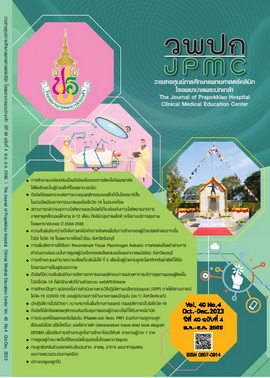Management of Concussion and Mild-Traumatic Brain Injury in Rural Settings
Main Article Content
Abstract
Generally, rural residents have decreased logistical, educational, and financial access to health care. Underreporting of mild traumatic brain injuries (mTBIs) is attributable to decrease awareness of needing care (e.g., sports concussions), limited access to care, ineffective treatments following injury, and unclear follow-up/referral guidelines. All of which are further reduced in rural settings when compared with urban/ suburban areas. Access to neurological/neurosurgical care is limited by decreased hospital and specialty physician coverage, lack of transportation, financial constraints, and cultural attitudes. To date, management practices within rural systems of care are under-characterized from a national and international perspective. The mTBI/concussion treatment is typically conservative, with a clinical diagnosis supported by neuroimaging and often a period of observation, cognitive rest, and return precautions. It has been reported that early interventions, for example, emergency department (ED) visits, may not improve outcomes in clinic compared with patients who did not seek medical treatment. Absence of validated treatments for acute mTBI/concussion does not, however, obviate the need for follow-up. It is increasingly recognized that mTBI/ concussion can cause long-term consequences, for example, functional deficits limiting return to work, and a variety of neurocognitive and neuropsychiatric symptoms. Lack of health care engagement in the setting of persistent symptoms can present significant challenges to have deleterious impacts to socioeconomic self-sufficiency and cause development of maladaptive coping mechanisms. Recovery in rural and/or low-resource settings presents additional challenges for rehabilitation and training for both patients and providers. Understanding unique considerations in rural health care utilization after mTBI/concussion is critical to improve access and reduce health care burden. We provide a comprehensive review of the current evidence on rural mTBI/concussion epidemiology, risk factors, management, and discharge plans in Phrapokklao Chantaburi Hospital settings for this vulnerable group of patients.
Article Details

This work is licensed under a Creative Commons Attribution-NonCommercial-NoDerivatives 4.0 International License.
References
Phuenpathom N, Srikijvilaikul T, editors. Clinical practice guidelines for traumatic brain injury. Nonthaburi: Ministry of Public Health; 2019.
Jennett B, Murray A, Carlin J, McKean M, MacMillan R, Strang I. Head injuries in three Scottish neurosurgical units. Scottish head injury management study. Br Med J 1979;2:955-8.
Menon DK, Schwab K, Wright DW, Maas AI. Position statement: definition of traumatic brain injury. Arch Phys Med Rehabil 2010;91:1637-40.
Rimel RW, Giordani B, Barth JT, Boll TJ, Jane JA. Disability caused by minor head injury. Neurosurgery 1981;9:221-8.
Teasdale G, Jennett B. Assessment of coma and impaired consciousness. A practical scale. Lancet 1974;2:81-4.
Committee on Trauma. ATLS advanced trauma life support: Student Course Manual. 10th ed. Chicago: American College of Surgeons; 2018.

